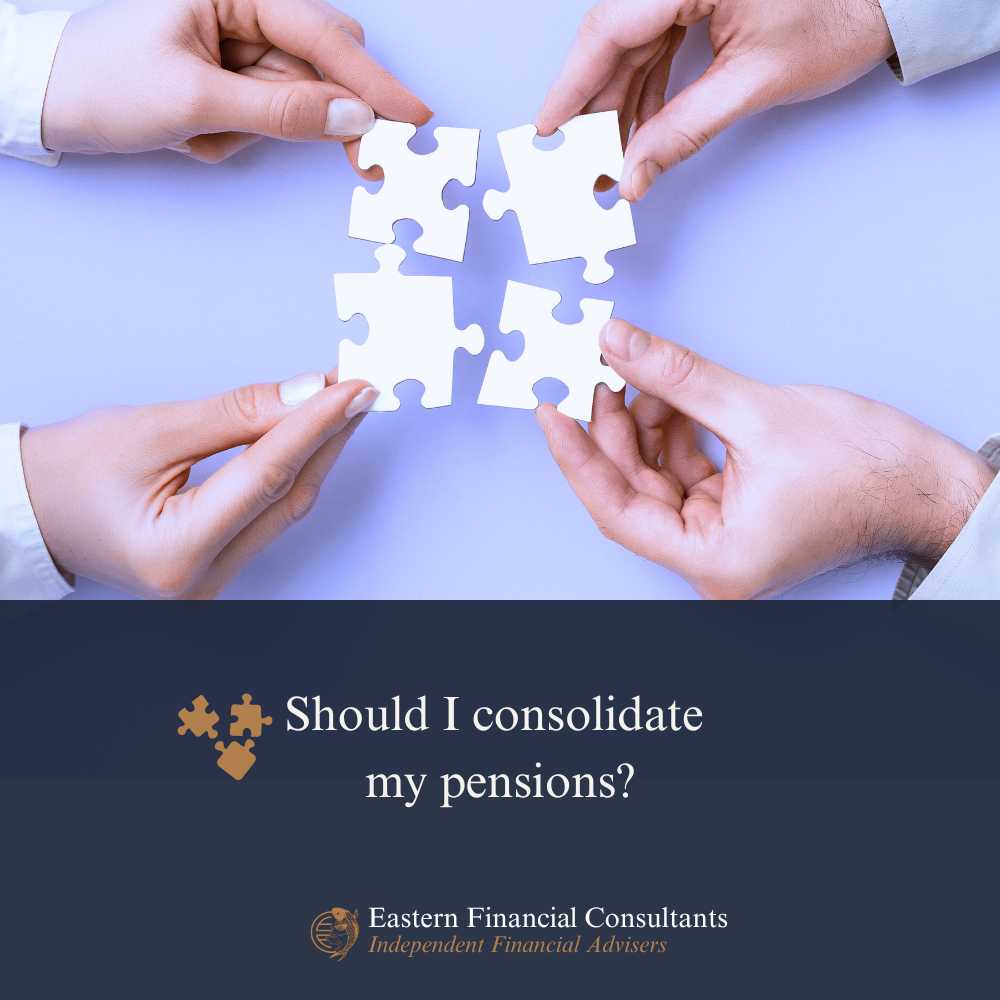Should I Consolidate My Pensions?

If you’ve changed jobs a few times over the years, you’re not alone in accumulating multiple pension pots along the way. It’s estimated that millions of people in the UK have lost track of at least one pension. Now, with new government plans to help savers keep tabs on their money, the topic of pension consolidation is more relevant than ever.
In this blog, we explore what pension consolidation is, the pros and cons, and when seeking independent financial advice could make all the difference.
What is Pension Consolidation?
Pension consolidation means combining two or more of your pension pots into one. This is usually done by transferring your existing pensions into a single scheme or provider.
Why Consider Consolidating Your Pensions?
There are several reasons why pension consolidation might make sense:
- Simplicity: Fewer pots mean fewer statements, less paperwork, and a clearer view of your overall retirement savings.
- Lower Fees: Some older pension plans charge higher fees. Consolidating into a more cost-effective plan could mean more of your money stays invested.
- Greater Control: Having all your pensions in one place makes it easier to manage your investments and align them with your retirement goals.
When Consolidation Might Not Be Right for You
Despite the benefits, pension consolidation isn’t always the best route. You should be cautious if:
- You have a defined benefit (final salary) pension: These often come with valuable guarantees that you might lose if you transfer out.
- Your current pension has exit fees: Some providers charge penalties for transferring out early.
- You have pensions with guaranteed annuity rates or other special benefits: These perks may be lost if you move your money.
What’s Changing? The Government’s New Plans for Small Pension Pots
In an announcement made on 24 April 2025, the UK Government confirmed it will introduce a new ‘default consolidator’ system designed to automatically bring together small pension pots under £1,000. With around 12 million deferred small pots currently in the system, this change could help savers boost their retirement funds by an average of £1,000 through reduced fees and improved investment returns.
This initiative is particularly aimed at people who frequently change jobs and leave behind small pension pots, which can be hard to keep track of.
While this automatic consolidation is focused on small pots, those with multiple larger pensions will still need to take a more hands-on approach—ideally with professional guidance.
When to Seek Independent Financial Advice
Making decisions about your pension is a long-term commitment. Here’s when speaking to an independent financial adviser (IFA) can really help:
- You’re unsure about the types of pensions you hold.
- You want to check whether you’d lose any valuable benefits by transferring.
- You need help choosing a suitable new pension provider.
- You want to make sure your investments are aligned with your retirement goals.
- You have a complex financial situation or multiple pensions from different jobs.
At Eastern Financial Consultants, we offer independent, unbiased advice to help you make informed decisions about your pension options. Whether you’re looking to simplify your finances, reduce fees, or plan your retirement income, we’re here to guide you every step of the way.
Ready to Take Control of Your Pensions?
Get in touch with our expert advisers today to discuss your pension consolidation options. Your retirement should be something to look forward to—not a maze of forgotten pension pots.
The value of pension investments can fall as well as rise and past performance is not a guide to future performance. You may get back less than you invested as investment returns are not guaranteed.
Latest News

Should I Consolidate My Pensions?
14-05-2025

Investing in uncertain times
24-04-2025

Investing into an ISA
21-03-2025

Why Ongoing Financial Advice Matters: Keeping Your Investments on Track
12-02-2025

Maximising Tax Efficiency: Investments and Pensions Before the Tax Year Ends
29-01-2025

New Year, New Financial You: Reviewing Your Goals for 2025
08-01-2025